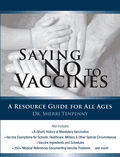HUMAN SUBJECTS RESEARCH VULNERABLE TO UNETHICAL MANIPULATION
By
NWV News writer Jim Kouri
Posted 1:00 AM Eastern
March 28, 2009
© NewsWithViews.com
[NewsWithViews.com participated in a press conference held by members of the medical community in New York City.]
The Institutional Review Board system is vulnerable to unethical manipulation, which elevates the risk that experimental products are approved for human subject tests without full and appropriate review, according to an undercover investigation.
The US government policy applies to all research involving human subjects conducted, supported or otherwise subject to regulation by any federal department or agency which takes appropriate administrative action to make the policy applicable to such research.
This includes research conducted by federal civilian employees or military personnel, except that each department or agency head may adopt such procedural modifications as may be appropriate from an administrative standpoint. It also includes research conducted, supported, or otherwise subject to regulation by the federal government outside the United States.
Compliance with this policy requires compliance with pertinent federal laws or regulations which provide additional protections for human subjects.
This policy does not affect any state or local laws or regulations which may otherwise be applicable and which provide additional protections for human subjects.
In order to test the government system's integrity, investigators created fictitious companies, used counterfeit documents, and invented a fictitious medical device to investigate three key aspects of the IRB system, according to the Government Accountability Office.
Investigators from the GAO created a web site for a bogus IRB and advertised the bogus IRB's services in newspapers and online. A real medical research company contacted the bogus IRB to get approval to join ongoing human trials involving invasive surgery -- even though the GAO's investigators had no medical expertise whatsoever.
Since the transaction involved privately funded human subjects research and did not involve any FDA-regulated drugs or devices, GAO's bogus IRB could have authorized this testing to begin without needing to register with any federal agency.
GAO also registered its bogus IRB with the Department of Health and Human Services, and used this registration to apply for an HHS-approved assurance for GAO's fictitious medical device company. An assurance is a statement by researchers to HHS that their human subjects research will follow ethical principles and federal regulations, which is required before researchers can receive federal funding for the research.
On its assurance application, GAO designated its bogus IRB as the IRB that would review the research covered by the assurance. Even though the entire process was done online or by fax -- without any human interaction--HHS approved the assurance for GAO's fictitious device company.
With an HHS-approved assurance, GAO's device company could have applied for federal funding for human subjects research. Obtaining IRB approval for human testing, GAO succeeded in getting approval from an actual IRB to test a fictitious medical device on human subjects.
GAO's fictitious device had fake specifications and matched several examples of "significant risk" devices from Food and Drug Administration guidance. The IRB did not verify the information submitted by GAO, which included false information that the FDA had already cleared GAO's device for marketing.
Although records from this IRB indicated that it believed GAO's bogus device was "probably very safe," two other IRBs that rejected GAO's protocol cited safety concerns with GAO's device.
No human interaction with these IRBs was necessary as the entire process was done through e-mail or fax. GAO's bogus IRB also could have approved the fictitious protocol, which shows the potential for unethical manipulation in the IRB system.
GAO analysts briefed HHS officials on the results of its investigation. The director of Office of Health Related Protocols stated that, when reviewing assurance applications, HHS does not consider whether IRBs listed on the applications are adequate -- even though HHS is required to do so by law.
In addition, HHS officials stated that the department does not review assurance applications to determine whether the information submitted by applicants is factual.
"This case is a perfect example of the gross negligence that results from government bureaucracies actively running health care and the ineptitude of the bureaucrats who should be looking out for us," warns political strategist Mike Baker.
"People's lives are at stake and the business of Americans' health and safety is being conducted by emails and faxes. It should outrage most clear-thinking Americans," Baker said.
One conservative activist questioned why the GAO report never made it to the New York Times, Washington Post, ABC News, etc.
|
Subscribe to the NewsWithViews Daily News Alerts! |
"In the midst of a debate over government-run health care or even socialized medicine, I believe the news media are covering this up so that Americans don't see the dangers involved when the feds run the practice of medicine and medical research," said Dr. Paul Stanley, an Orthopedic surgeon in New York.
"Once the government grabs hold of something, including medicine, it will never give it up," warns Dr. Stanley.













